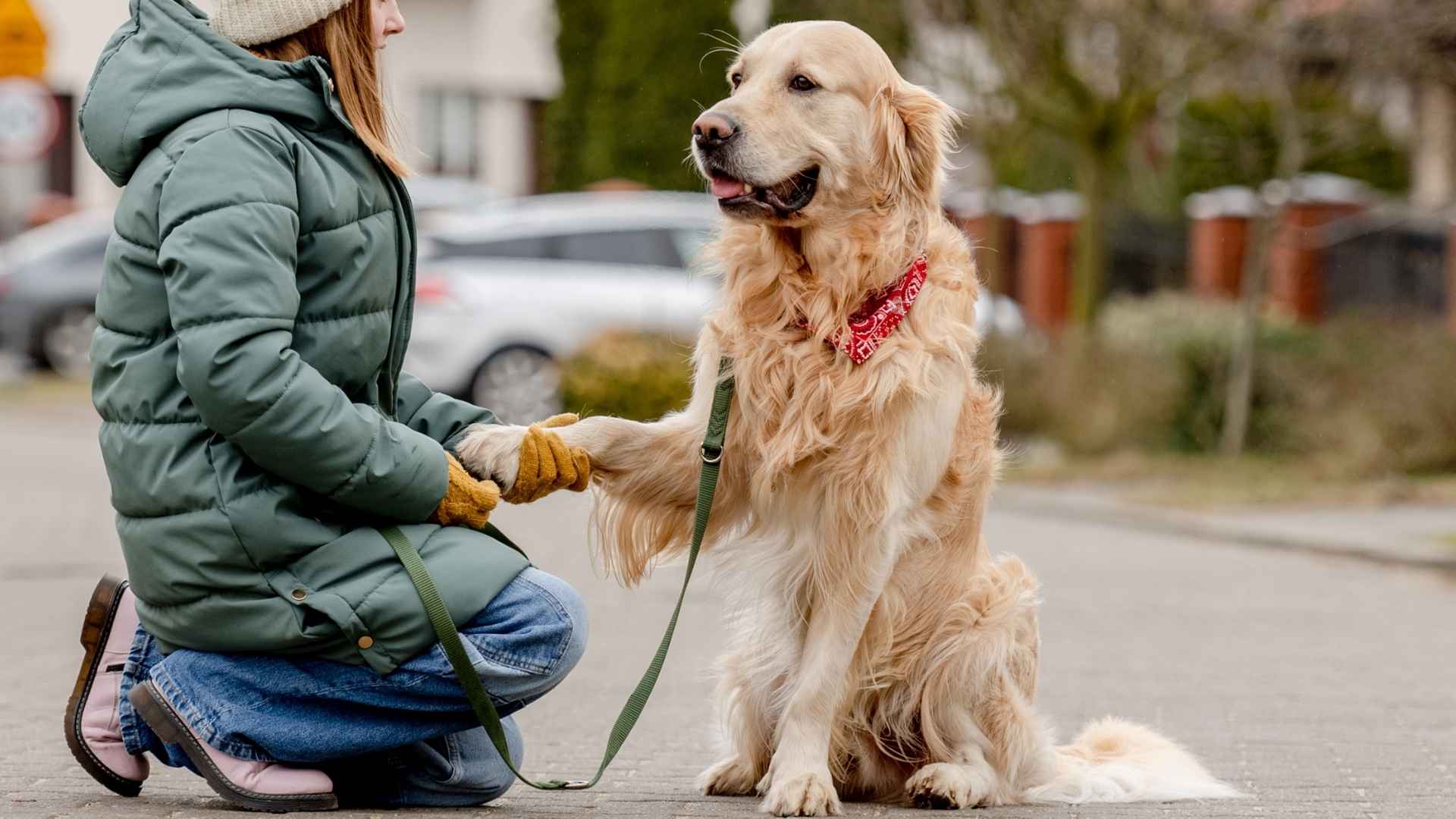Some pups have an uncanny ability to sense emotions, offering comfort when you’re down and celebrating when you’re happy. These emotionally attuned dogs don’t just wag their tails—they read the room, tuning into your moods like a lifelong best friend.
But what makes certain dogs so emotionally connected? It’s not just about being affectionate; it’s about instinct, intelligence, and a deep-rooted bond with humans. These dogs pick up on subtle cues—your tone of voice, body language, even the slightest shift in energy. Before you even realize you need comfort, they’re already there, nuzzling in or resting a reassuring paw on your lap.
Whether you’re looking for a loyal companion to ease anxiety, provide emotional support, or just vibe with your feelings, these dogs are in a league of their own. Ready to meet the most emotionally in-tune canine companions? Let’s dive in!
Emotionally Attuned Dog Breeds
1. Golden Retriever

Golden Retrievers aren’t just friendly—they’re emotionally wired to connect with humans on a deeper level. These dogs don’t just sense your emotions; they respond to them. Feeling down? A Golden will nuzzle up, offering silent comfort. Celebrating something? Expect joyful tail wags and enthusiastic jumps.
One thing that sets Goldens apart is their incredible intuition. They can pick up on subtle cues like a change in your tone or posture. Even if you try to hide your feelings, they know. This makes them fantastic for individuals struggling with anxiety or depression—they provide comfort before you even realize you need it.
These dogs are also incredibly expressive. They don’t just sit quietly beside you—they actively communicate. Whether it’s a gentle paw on your leg, a comforting head tilt, or an excited bark when they sense your happiness, they make sure you know they’re there for you.

Golden Retrievers aren’t just affectionate; they’re also highly loving and playful, according to states AKC. Whether you’re a busy professional, a homebody, or someone with an active lifestyle, they adjust effortlessly. They’ll match your energy, whether you need a playful jogging partner or a calm, snuggly companion during tough days.
One of their most endearing traits? Unwavering loyalty and devotion. They don’t just form bonds; they create lifelong attachments. A Golden will stick by your side no matter what, making them an excellent choice for families, individuals, and even seniors looking for a constant source of emotional support.
2. Labrador Retriever

Labrador Retrievers aren’t just loving companions—they’re like walking sunshine. These dogs have an infectious enthusiasm that can lift anyone’s spirits, no matter how rough the day has been. Unlike some emotionally attuned breeds that focus on quiet comfort, Labs take a more active approach to emotional support.
They thrive on human interaction and have an innate ability to make their owners feel good. They’re naturally sensitive to tone, facial expressions, and body language, making them excellent companions for those dealing with anxiety, loneliness, or PTSD. They won’t just sense your emotions—they’ll act on them.
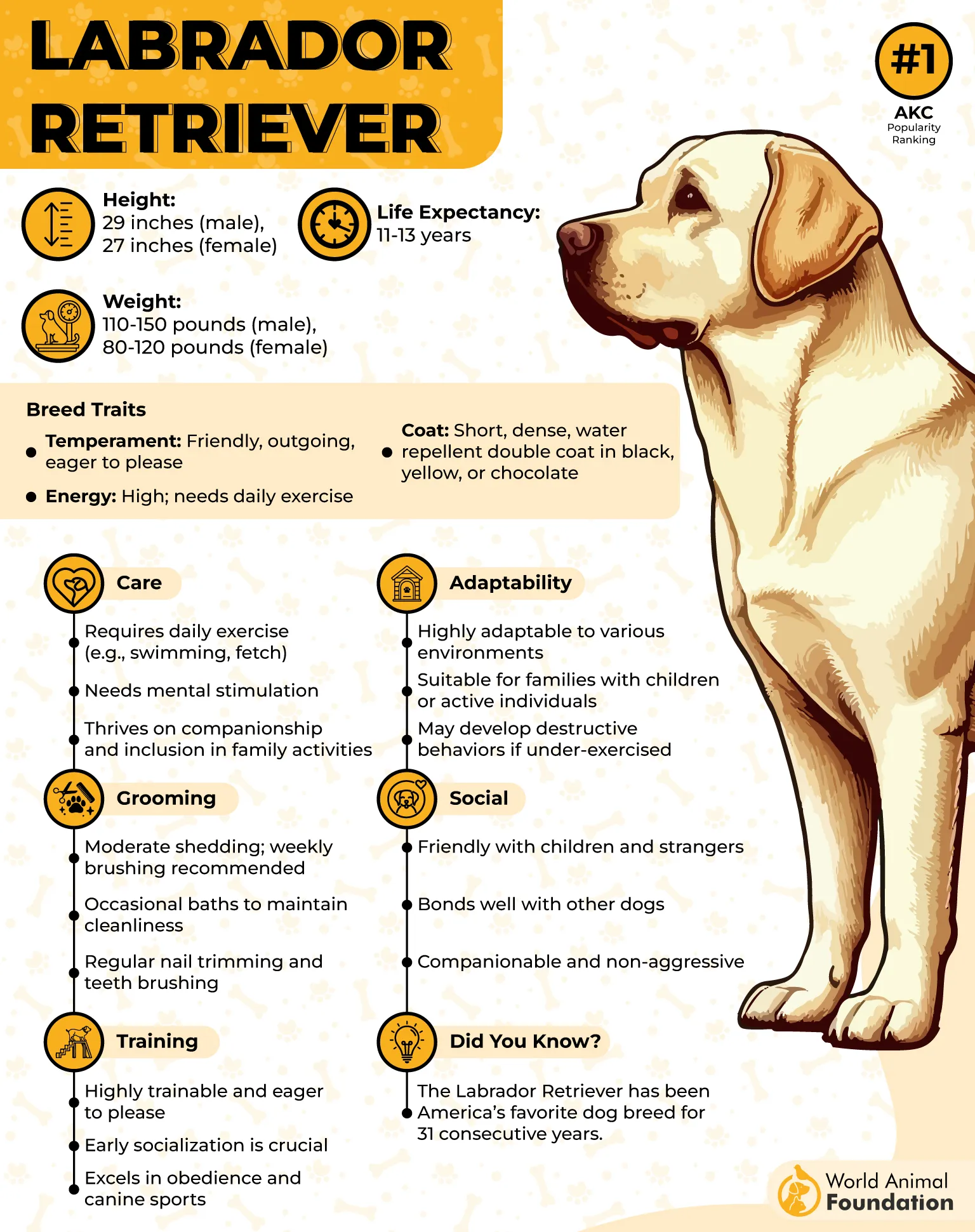
One standout trait is their ability to offer consistent emotional support. Some dogs are naturally independent, but Labs? They’re all about you. They follow their owners from room to room, checking in constantly. It’s like having a best friend who never lets you feel alone but is incredibly affectionate, says WebMD.
Labs are also known for their incredible patience—a crucial trait in emotional support dogs. Unlike high-strung breeds that can become anxious themselves, Labs maintain a steady, calming presence. This is why they excel in therapy work, helping everyone from children with autism to veterans with PTSD.
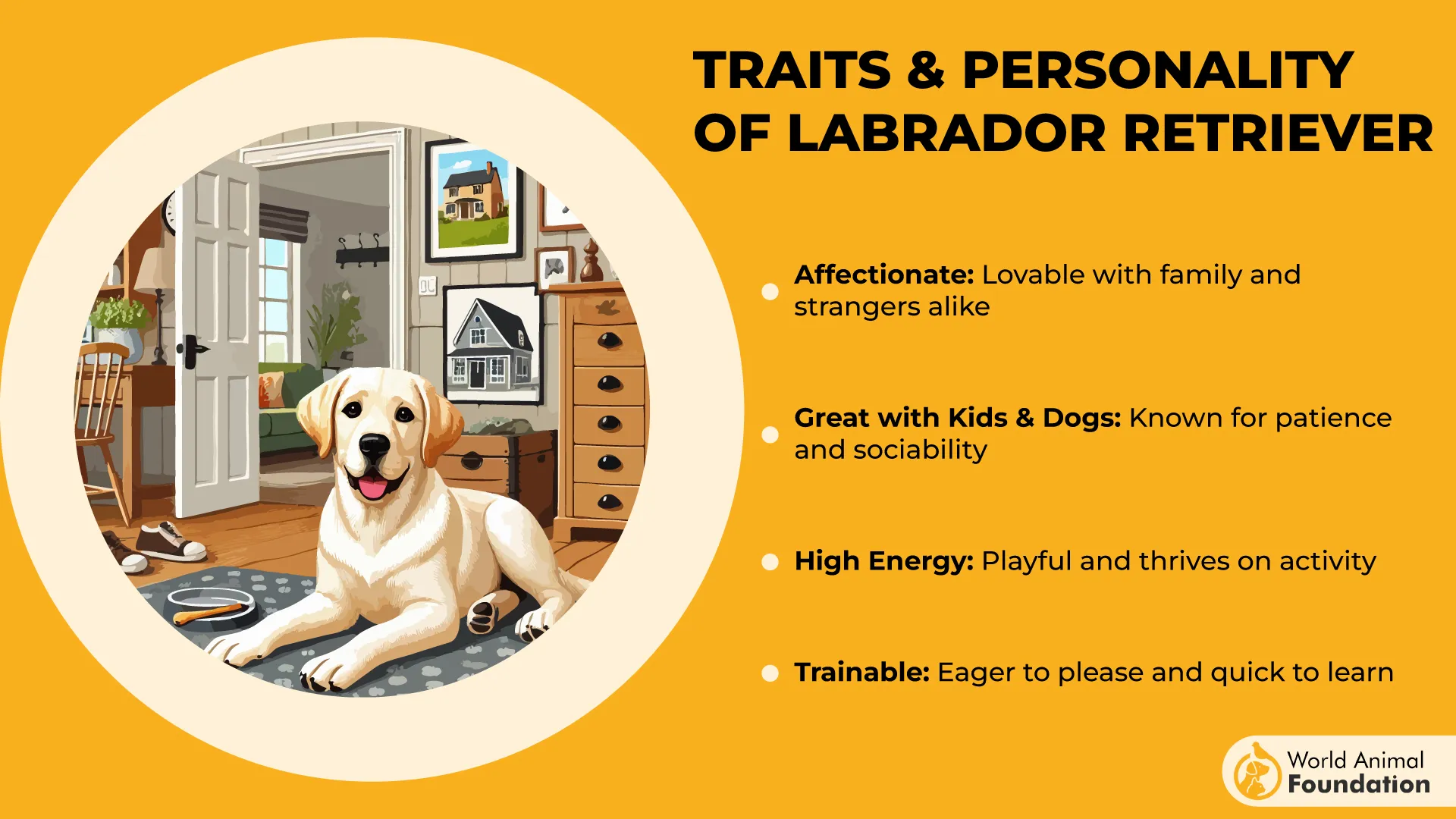
While they provide deep emotional support, they also bring a sense of joy that’s hard to put into words. A Lab’s playful antics—whether it’s zooming around the yard or carrying a shoe around the house like a trophy—remind you not to take life too seriously. Because sometimes, the best therapy is simply laughter.
3. Poodle

Instead of just sensing feelings, these intelligent dogs analyze them. While some breeds respond instinctively to emotions, Poodles take a more thoughtful approach. They observe, process, and respond appropriately.
Unlike some breeds that rely purely on physical affection, Poodles engage on a deeper level and are extremely intelligent, says AKC. They communicate their support, whether it’s through direct eye contact, a soft head tilt, or an intentional shift in behavior. They won’t just sit by your side—they’ll actively engage with you.
One of their standout traits is their adaptability. Poodles can seamlessly adjust their energy levels depending on their owner’s mood. Need a distraction? They’ll grab a toy and initiate a game. Their ability to match emotions makes them ideal for those needing both calm support and playful encouragement.
Their combination of intelligence and empathy makes them natural-born caregivers. They excel in emotional support roles, helping children, the elderly, and even individuals recovering from trauma. Their trainability allows them to be taught specific tasks, like recognizing anxiety triggers and providing comforting interventions.
Poodles are also known for their sophisticated charm. While some emotionally attuned breeds rely heavily on physical presence, Poodles bring a unique mix of elegance and affection. They’re intuitive without being overbearing, affectionate without being clingy. They give space when needed and closeness when it matters most.
4. Pug

Pugs may be small, but their emotional impact is anything but. These wrinkly-faced charmers have an uncanny ability to sense emotions and respond instantly. Unlike breeds that rely on big, dramatic gestures, Pugs excel in the subtle art of emotional support.
One of the most endearing things about Pugs is their expressive faces. Those big, soulful eyes and wrinkled brows make it seem like they’re always deep in thought, completely in tune with their owner’s emotions. Feeling stressed? One look at a Pug’s silly little head tilt can instantly lighten the mood.
Pugs aren’t just emotional mirrors; they actively try to fix your mood. Instead of offering quiet support, Pugs takes a more comedic approach. They’ll roll onto their backs, wiggle around, or chase their own tails—anything to get you to crack a smile. Their mission? To make sure their human is never sad for long.
Ever noticed how a Pug follows you from room to room? It’s because they genuinely don’t want you to feel alone. Their average lifespan is 13-14 years, according to PetMD. Pugs thrive on closeness, always making sure they’re within a few feet of their favorite person. Your Pug will be right there, making sure you never feel isolated.
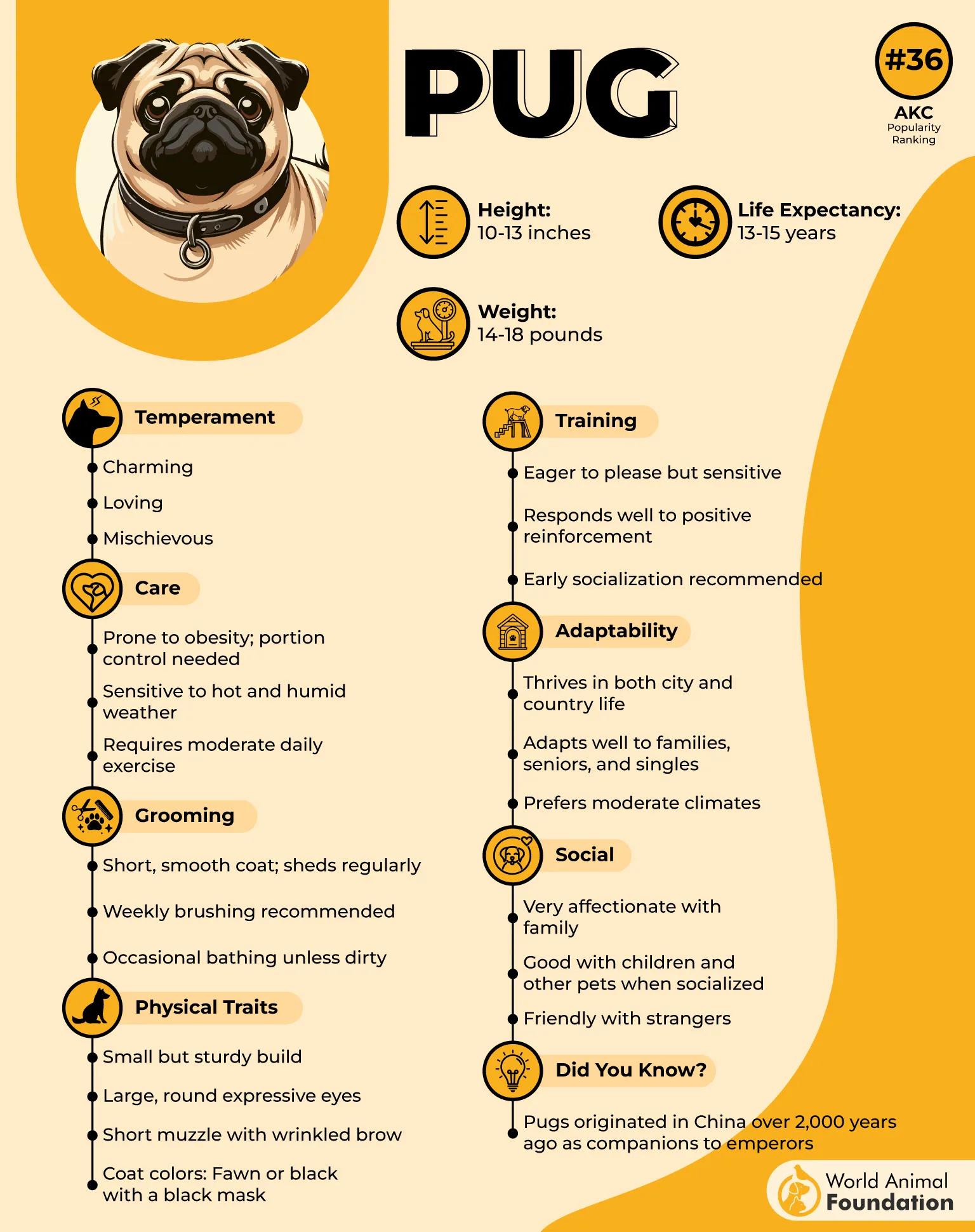
One of their most impressive traits is their ability to match energy levels. If you’re feeling low, they’ll cuddle up and offer quiet companionship. Feeling playful? They’ll instantly switch gears and engage in silly antics. Their emotional flexibility makes them an ideal companion for a wide range of people, from kids to seniors.
5. Shih Tzu

Shih Tzu weren’t just bred to look regal but to be companions. These little dogs have mastered the art of emotional support, thanks to centuries spent as lapdogs for Chinese royalty. Unlike some breeds that offer affection in bursts, Shih Tzu is consistently attuned to their humans, always ready to provide comfort and warmth with their fluffy presence.
Some emotionally attuned breeds can be a bit overwhelming, but the Shih Tzu has a balanced approach. They don’t demand attention—they offer it. They’ll sit quietly nearby if you need space, waiting for you to reach out. But the moment you’re ready for affection, they’ll shower you with gentle cuddles.
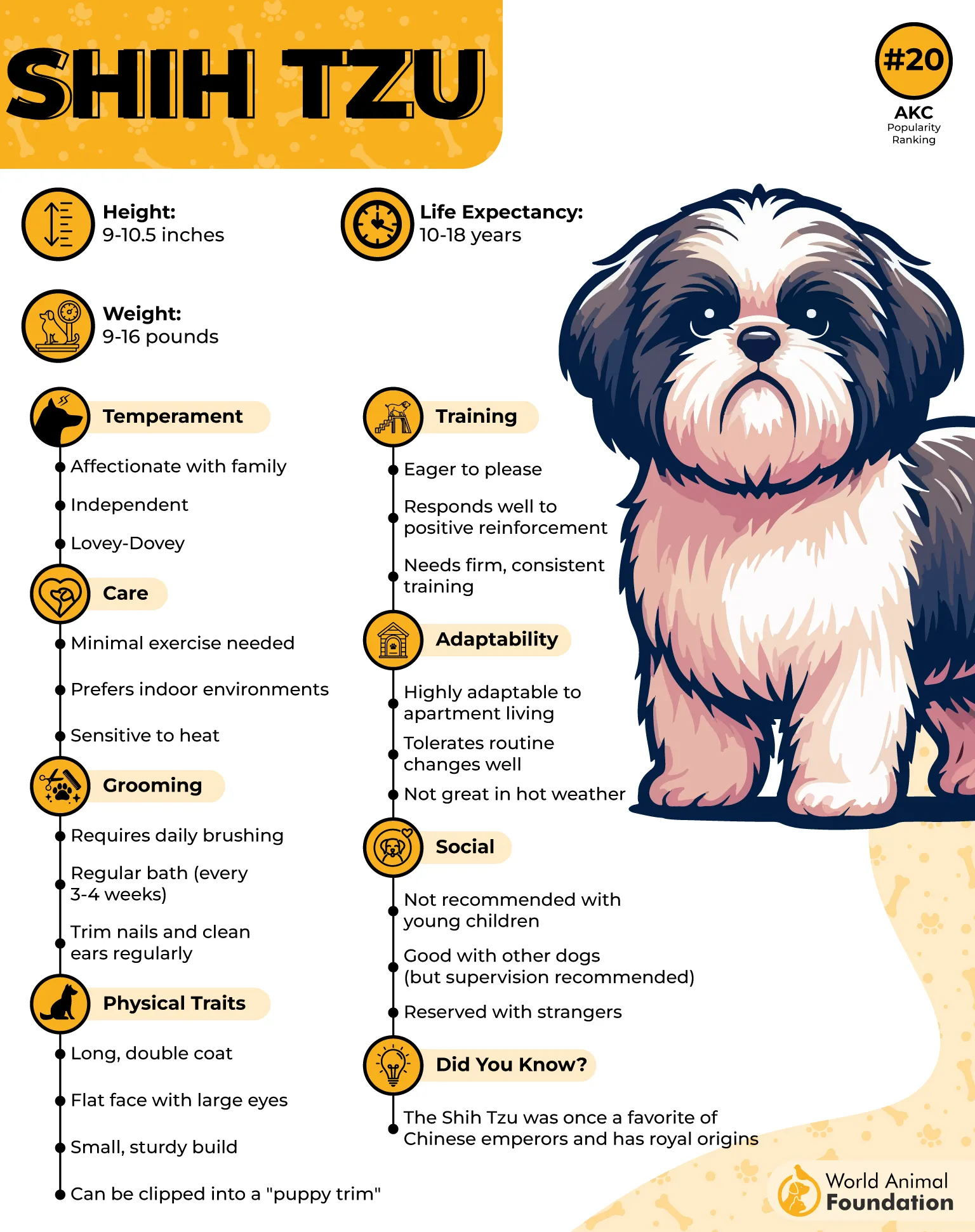
Shih Tzu stares at you with those big, round eyes. That’s not just a cute expression—it’s emotional scanning. They’re constantly checking in, making sure you’re okay. If they sense sadness, they’ll nuzzle closer. If they sense excitement, they’ll wag their tails with enthusiasm.
Another reason they’re so effective at emotional connection? Their low-stress energy. According to AKC, Shih Tzu is naturally calm and affectionate, making them perfect for people who need a steady, reassuring presence. Unlike high-energy breeds that might overwhelm sensitive owners, Shih Tzu brings a sense of peace wherever they go. They’re like little Zen masters in dog form.
And let’s not forget their sense of humor. While they excel at being comforting companions, they also have a playful side. Shih Tzu loves to prance around, wiggle their tiny tails, and give you those goofy expressions that make even the hardest days feel lighter.
6. Cocker Spaniel
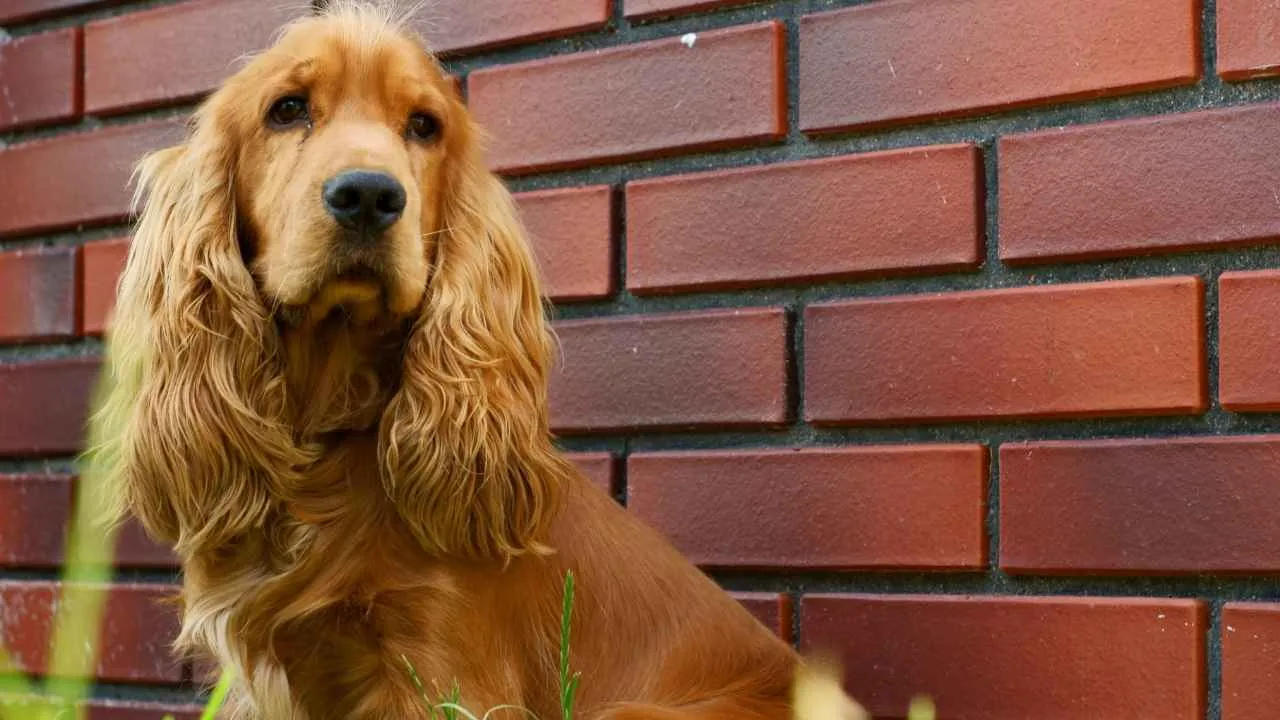
These gentle, people-loving dogs have an incredible ability to sense shifts in mood and respond with pure devotion. Whether you need a cuddle, a playful distraction, or a warm presence beside you, a Cocker Spaniel knows how to be there for you.
One of their most endearing qualities is their expressive eyes. A Cocker Spaniel can communicate a whole range of emotions without making a sound. Ever had a dog look at you as if they understood exactly what you’re going through? That’s a Cocker Spaniel’s specialty. Their soulful gaze and gentle demeanor make them perfect for anyone who needs emotional reassurance.
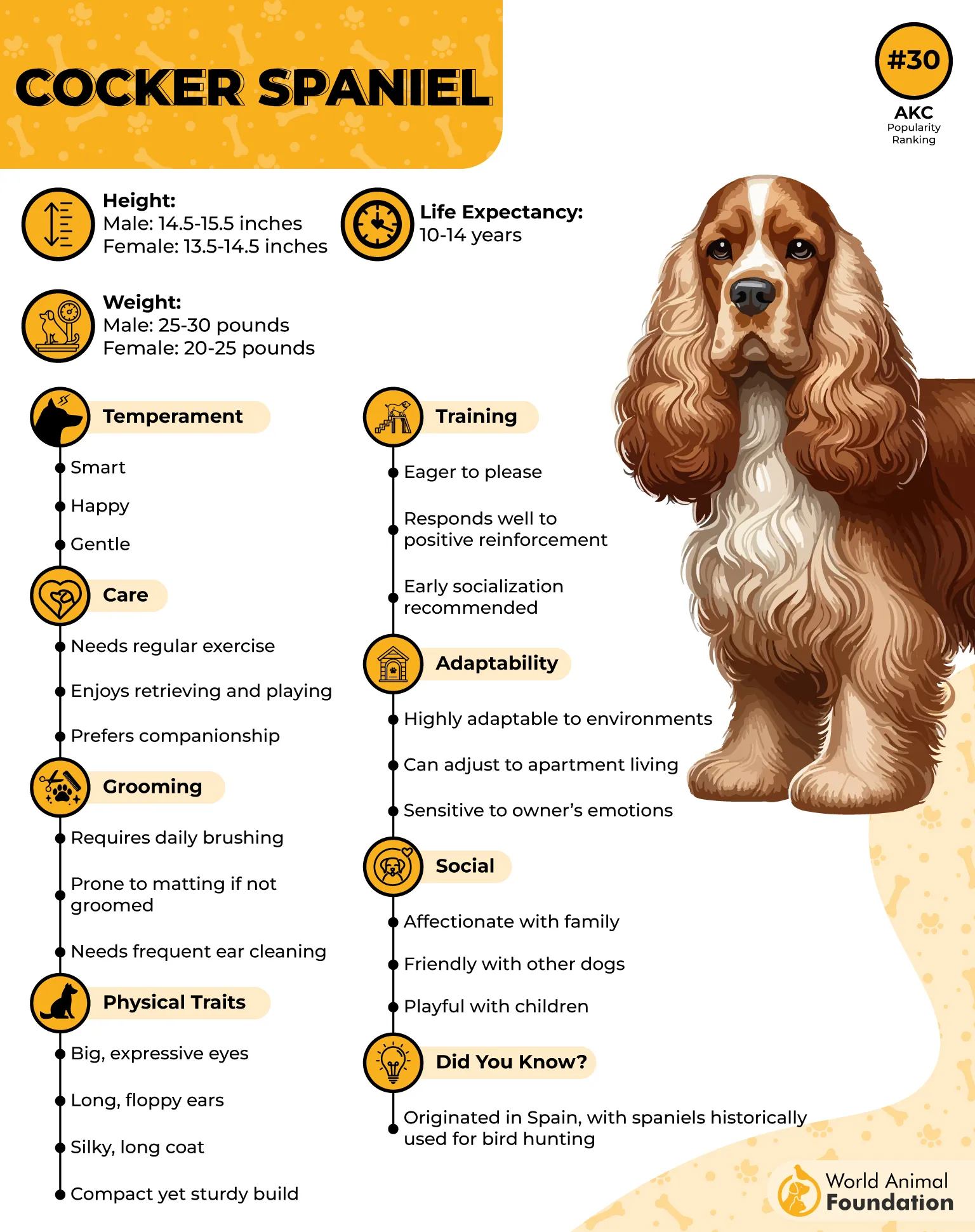
Cocker Spaniels are also expert listeners. They won’t interrupt your thoughts, rush you, or demand attention when you need space. Instead, they’ll sit patiently, offering quiet support in a way that feels effortlessly comforting.
Despite their calm and empathetic nature, they love engaging with their humans in playful ways. They have a natural cheerfulness that shines through, making them fantastic at lifting spirits. Whether they’re wagging their tails so hard their whole body moves, or bringing you their favorite toy.
Cocker Spaniels also excel as therapy dogs, thanks to their sensitivity and affectionate nature, says Purina. They provide genuine comfort without overwhelming their owners. Their emotional intelligence makes them one of the best breeds for support and companionship.
7. German Shepherd
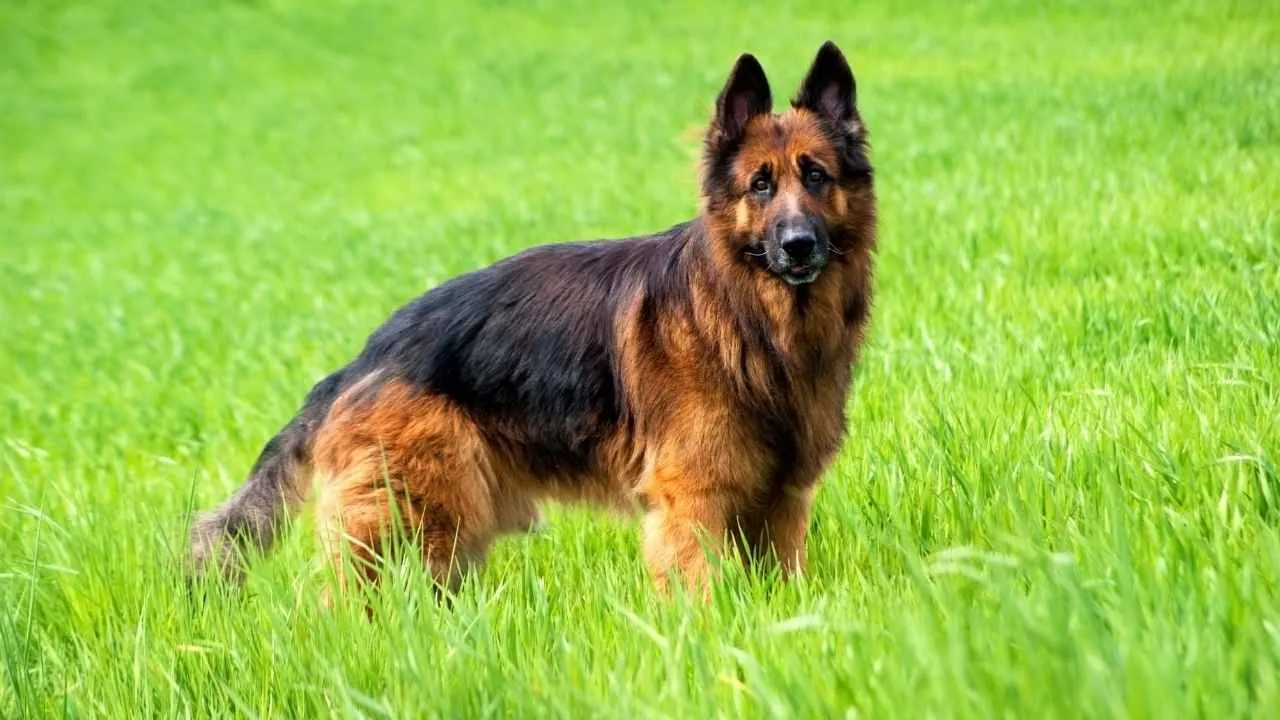
These dogs aren’t just protectors—they’re partners, forming an unbreakable bond with their humans. Their loyalty isn’t just about duty; it’s about connection. If you’ve ever wanted a dog that feels like an extension of you, a German Shepherd is exactly that.
They don’t just react to your energy; they absorb it. Feeling stressed? A German Shepherd will stay close, offering quiet reassurance. Feeling anxious? They’ll position themselves protectively, making you feel safe without needing to say a word. It’s like having a bodyguard and a therapist wrapped into one furry companion.
These dogs are highly intuitive, often responding to commands or emotions before even being said. They sense tension, excitement, sadness, and even subtle changes in your mood. Their ability to adapt to your emotional needs makes them one of the best support dogs in the world.

German Shepherds aren’t just smart in the traditional sense—they have emotional intelligence, too. They can distinguish between a real threat and a false alarm, know when to be playful and when to be serious, and adjust their behavior based on what they need at the moment.
Despite their strong and protective nature, they have a gentle side when they’re around their favorite humans. The German Shepherd Dog does not give affection lightly, says the AKC. They crave closeness, love being included in family activities, and will even lean against you for comfort. Who knew such a powerful dog could also be such a softie?
Fun Fact: German Shepherds have been known to sense oncoming panic attacks before they happen, sometimes even minutes in advance. Their ability to predict and respond to emotions is truly extraordinary!
Conclusion
Certain dog breeds possess an extraordinary ability to connect with human emotions, making them excellent emotional support animals and dogs. Breeds like the Cavalier King Charles Spaniel, Labrador Retriever, and Golden Retriever can sense their owner’s moods and provide unwavering companionship. Their gentle nature, affectionate temperament, and loyal nature make them devoted companions for individuals experiencing mental health conditions such as depression or panic attacks.
The right breed, whether a small dog like a Poodle or a gentle giant like a Great Dane or Irish Wolfhound, can offer unconditional love and comfort through deep emotional attunement. Many emotional support dog breeds, including Border Collies, Australian Shepherds, and Poodles, are highly intelligent and adept at reading human emotions. Their ability to form deep bonds with their owners allows them to provide essential emotional support for those struggling with mental health challenges.
Whether assisting with panic attacks, offering endless love, or simply responding to an owner’s emotions, these dogs thrive in environments where they can provide comfort and support. Unlike regular pets, therapy dogs are trained to respond to human emotions, creating a deep connection that is essential for emotional healing.


